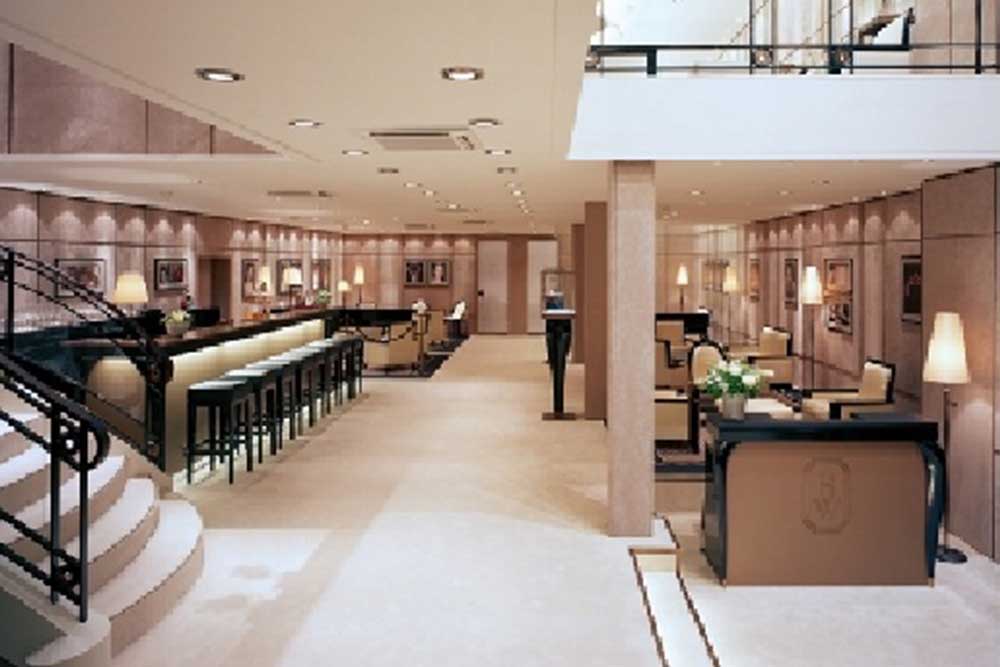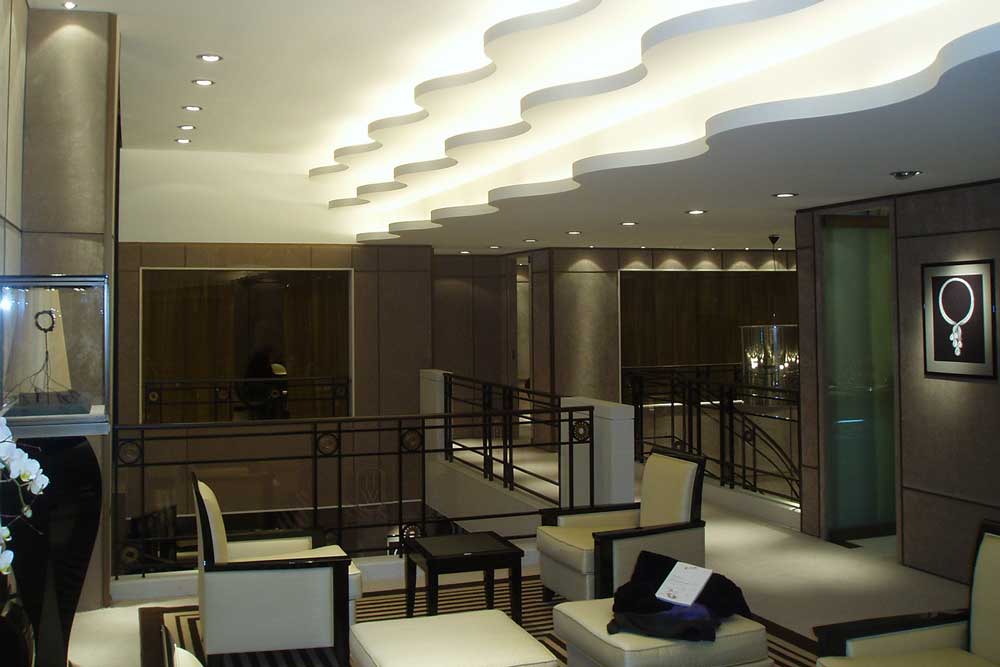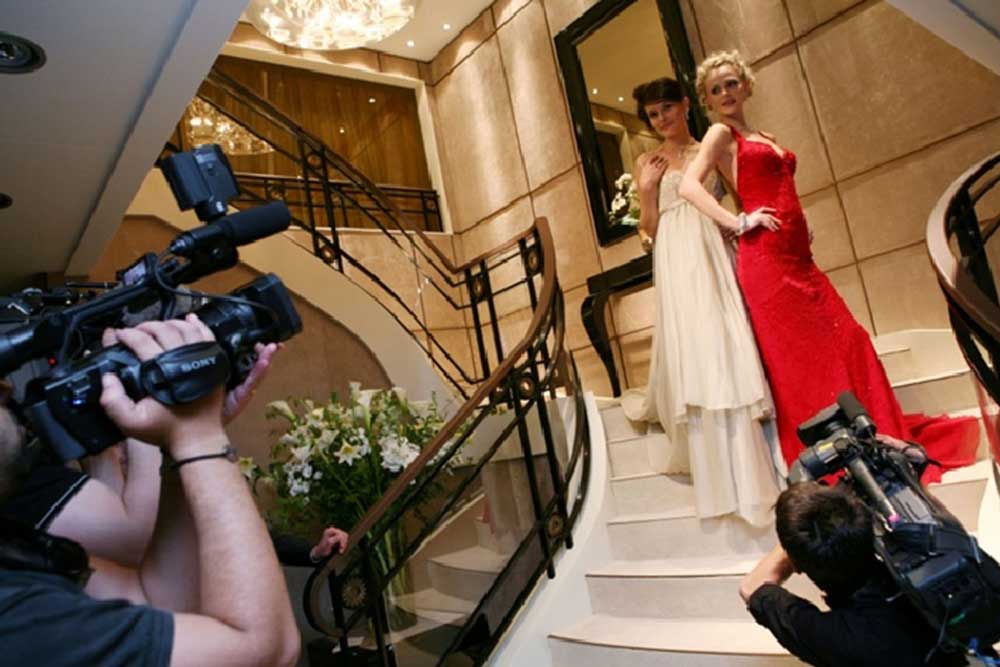In this section we'll look at how to become a meeting and convention planner / exhibition manager or conference organizer. Understand who organizes conventions, conferences, trade shows, and exhibitions, the different ways you can work in convention/conference management, and the pros of working in this sector of the events industry.
There are two main ways that an event planner might work on conventions, exhibitions, trade shows, and conferences.
The first is if they work directly for the company that organizes the convention / exhibition / conference / trade show.
This might be a commercial convention/exhibition-organizing company, such as Reed Exhibitions, UBM, or Media 10.
Alternatively, it might be an association that represents a particular industry, for example, the Miami International Boat Show is organized by the National Marine Manufacturers Association, and the Nada Convention and Expo is organized by The National Automobile Dealers Association.
If it’s a commercial convention/exhibition-organizing company, they will generally ‘own’ the event themselves and run it as a for-profit event. These companies will have dedicated event planners that work in-house.
If it’s an association, they might employ in-house event planners or they might sub-contract all the organizing out to an event agency—however in this case, the organizing company would just work for the association, who would retain ownership of the event itself.
The second way is to work for an event agency that either organizes the entire convention, or works for a client who wishes to take part in a particular trade show/exhibition. For example, George P Johnson is responsible for Motorola’s presence at Mobile World Congress in Barcelona. So, instead of organizing the entire Mobile World Congress event, a meeting and convention planner at George P Johnson would just work on creating an area within the exhibition to showcase Motorola’s products. Alternatively, an agency might also organize the entire event, such as George P. Johnson that organizes the Cisco Live! convention.
It’s the same with conferences. These might be organized by commercial conference-organizing companies, such as UBM Conferences who own and produce Black Hat in Las Vegas. Alternatively, they might be produced by an event agency on behalf of a client, such as Jack Morton who were responsible for CME Group’s Global Financial Leaders Conference.
Below are examples of some of the most common job titles used in the conference/convention planning sector of the events industry.
* Job titles such as Conference Services Manager or Convention Services Manager are positions within the convention center, exhibition hall, or conference center / hotel and are therefore actually more of a venue management role, rather than event planning. We’ll look at venue management roles and how these relate to event planning in the section Hotel & Venue Management.
As with corporate event and meeting planning, there are generally more event planning jobs available in conference and convention/exhibition planning, simply because business events such as these are more widespread across many different industries.
However, many event planners choose to work in this sector of the industry because of the creative challenges of producing these types of events. Conventions/exhibitions may attract thousands or tens of thousands of attendees, so the sheer scale of the event can a huge challenge.
Conventions centers where these events are held are usually cavernous empty halls, so that means creating an entire landscape from scratch with different stands, stages, catering and lounge areas, signage, lighting, screens, demonstration areas, entertainment, seminars, and workshop facilities.
Even if you’re not planning the overall convention, but rather working for an agency handling one particular client’s involvement in an exhibition, there’s still a big emphasis on design and construction. It involves taking an empty plot and creating an installation—bringing it to life through the use of set design, branding, signage, AV and technology, furniture, catering, product demonstrations, and staffing.
Design and construction plays a significant role in convention planning because you have to create a stand-out presence at the exhibition—where your client will be just one of hundreds, if not thousands, competing for attention. Therefore, a convention planner has to come up with innovative ideas that will make their mini-event-within-an-event really stand out from the competition.
When people refer to a company having a ‘stand’ at a convention/exhibition, the term can often be quite an understatement. I once worked on an event for the jewelry brand Harry Winston and, for research, they flew me to see their ‘stand’ at Baselworld, the jewelry and watch fair in Switzerland.
I was astonished to see that their ‘stand’ was actually a two-story boutique, created from scratch, within the exhibition hall. It really was as if they’d built a temporary shop, complete with a glass shop-front, huge bronze doors, sweeping staircases, chandeliers, and designer fixtures and fittings.
If you have a particular interest in interior / set design, construction, and spatial planning, then conventions / exhibitions may be a good area of the industry to focus on.



With conferences, there are similar creative challenges—in that organizers are always looking for fresh ideas and innovative ways to make the event more engaging. Often this means incorporating new technologies—it’s no longer just about boring PowerPoint presentations:
At Facebook’s F8 Developers Conference they created an interactive installation called Connections—an augmented reality space which brought a physical version of Facebook to life on the show floor.
The same hologram technology made famous by the Tupac Shakur’s ‘appearance’ at the Coachella festival was used for a presentation by Cisco CEO John Chambers who, while on stage at a conference in India, was able to ‘beam up’ two colleagues who were in California to join him onstage and take part in a ‘face to face’ discussion.
3D Projection Mapping is also being used to enhance presentations at conferences and conventions/exhibitions, with brands like Audi using the technology at various global launches in recent years.
If you’re interested in using the most up to date or state of the art technology at events, then corporate meetings and conferences can be a good place to do that. Of course, for every high-tech conference for the likes of Cisco, Google, and Facebook, there are dozens of traditional conferences—without all the exciting bells and whistles—for pharmaceuticals, energy supplies, and the like.
Similarly, if you're working on 'commercial conferences' which are for-profit events, the chances are they won't dedicate very much budget to these sorts of exciting 'extras'.
But there are always opportunities for innovative event planners to make their mark on even traditional conferences. A good planner can always inject some fresh and creative elements into an event—no matter what the budget.
One advantage of working in conferences and conventions/exhibitions is that you can choose to work on events for a specific industry.
For example, if have an interest in cars, boats, food & wine, film, or technology, you can seek out event organizers that produce events for that industry—which is a great way to combine your choice of career with another interest of hobby.
Unlike corporate event planning—where it’s unlikely you’ll have chosen to work at an investment bank or law firm because you actually have an interest in banking or law—conferences and convention/exhibitions span a range of interesting industries.
Alternatively, you may choose to work for a conference or convention/exhibition organizer that works across all different types of industries. Many event planners enjoy this because it’s like having a new job every few months. They might go from working on a property convention, to a publishing & media expo, then onto an interior design trade show, followed a consumer wedding fair.
Working on events for a variety of industries means you’re constantly being stimulated and learning new things; working on a wedding fair is likely to be a very different experience to working on a publishing expo!
To summarize, some of the advantages of becoming a convention planner / conference organizer are:
The most notable difference with these types of events is the sheer scale.
Even if you’re not planning the entire event, working in enormous convention centers and cavernous exhibition halls poses a very different set of challenges for an event planner—compared to other types of corporate event / meeting planning.
If anything, it’s closer to the experience of planning events in tents—in that you have to build everything from the ground-up.
Often, the event planner is just presented with a large empty space and has to add in all the elements a traditional venue would normally provide—such as internal walls, carpets, and ceiling.
It takes a certain type of skill to be able to work blind like this. To be able to visualize the space, have a sense of size and scale, and consider how everything will be constructed from scratch. Often, the event planner just be working from drawings and plans, trying to imagine how everything will look—because there will be nothing to actually see at the venue in advance, just an empty space.
Therefore, a convention planner has to be someone who is both good with numbers; measurements, distances, scales, and ratios, and is creative enough to be able to visualize how an environment is going to flow and operate—without being able to physically touch or see many of the elements in advance.
On top of that, they might have hundreds—or even thousands—of different exhibitors to liaise with, in addition to their regular suppliers. Or with conferences, the planner might also be co-ordinating hotel bookings and ground transport across a number of secondary locations outside of the main venue.
Given their size, being a convention planner / conference organizer requires taking a macro view of the event. While attention to detail—especially when it comes to construction and logistics—is important, convention planners / conference organizers also have to be able to visualize and oversee entire sites; where a conference might be running simultaneously to a trade show floor, stage performances, workshops, seminars, one-on-one break-out sessions, and drinks receptions.
For more information on how to become a convention planner or conference organizer, check out this site's companion book Become an Event Planner: Secrets for Getting Hired from Employers, Recruiters, and Event Professionals. Topics covered in the book include:
What does a conference planner do? Read a real conference organizer job description by Bill Jones, Vice President and Managing Director of Events, The Channel Company (formerly UBM Tech Channel)
